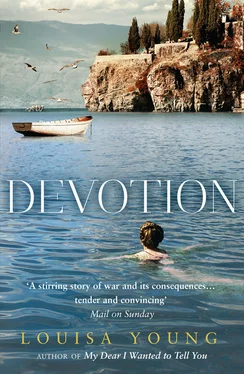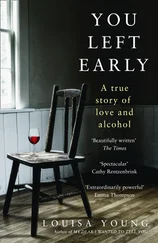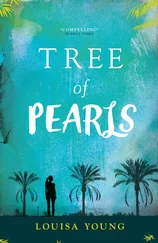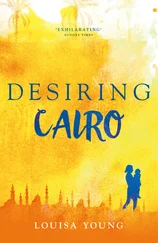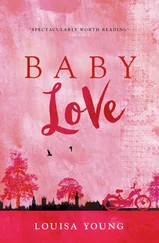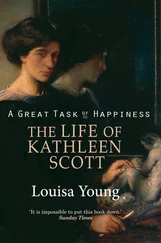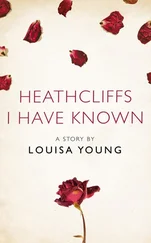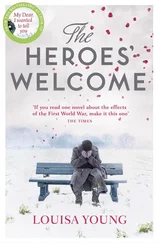
Sometimes, at night, Nenna imagined the island shaking itself free of the travertine stonework that moored it in place between Trastevere and Sant’Angelo. It would pull its roots out of Tarquin’s great skeleton, deep in the Tiber mud, its bonds would fall away, and slow and stately it would begin to move back down the river towards the sea, trailing froth behind it … where it was heading she didn’t know. She wasn’t sure that Kitty would turn out to be someone with whom she could discuss these things.
She lay and thought about Tom, who had been into the river all alone, before she even had the chance to offer it to him.

That first night Nadine wrote to Riley.
Isola Tiberina
Rome
17 July 1928
Riley my darling – it sounds like an Irish song that way round, doesn’t it? I want to tell you absolutely everything about everything – the journey (easy); the house – yes, they live on the actual island, right in the middle of the Tiber! Do you remember? With the hospital and the bridge with the head with four faces, that you said was a good symbol of the fallibility of the human race: all looking in different directions, not realising they were one creature? The back of the house slides right into the rocks and the river as if it were Venice or something. You look out the window and there it is. SO romantic. Rushing river noise all the time. And of course rather damp. And inside the house we have Aldo, who is terribly handsome and charismatic – I think you’d like him but perhaps not as he does take up a lot of room. He talks all the time – in English and Italian mixed so we are all learning and picking the language up (some (the children) faster than others (me)). He’s an engineer of some kind and plays the guitar. The little boys clamber all over him while he’s playing and he doesn’t mind at all. Lots of hair, big wise eyes like brown honey. He said tonight: ‘How do you like me? My enemies say is Aldo more Roman or more Jewish? I look like both, of course’ – and he does! You could just picture him in a toga, or in the robes of one of Bernini’s marble prophets. They don’t seem to be religious at all, thank god – can one thank god for that? It seems rather absurd – anyway, of course he doesn’t wear robes, he wears slightly flashy city garb: black suit, a white shirt, a pale blue waistcoat buttoned high at the neck. His English is eccentric but frankly I have no right to complain with my (lack of) Italian. I am reminded constantly of that line of Milton’s about educating children, about how ‘they may have easily learnt at any odd hour the Italian Tongue’. Susanna, his wife, is quite quiet but smiley. I haven’t got hold of her yet but I will though she has next to no English—
Here Nadine was about to write about the delicious dinner that Susanna and Aldo had produced on their first night. Even now, after all this time – perhaps because she was far from home and its everyday habits – it was easy to forget for a moment how unkind it would be to mention such things to her husband whose ease with food had been shot away with his jaw at Passchendaele.
The children are Fernanda, known as Nenna, who has lots of hair and a pale wide face like a Piero della Francesca , inscrutable, and the children terribly want her to like them, and two younger boys who I can’t tell apart – black-haired, naughty-eyed, tumbling and playful: Vittorio and Stefano, a pair of wriggly black-haired shrimps, who seem to be about six. Perhaps one of them is bigger than the other. Nenna is perhaps ten – a bit older than Kitty and a bit younger than Tom, so that’s all right, though I’m not sure what Tom is going to do all day as they – the girls – have already sneaked off upstairs and can be heard singing. The marvellous thing is that the piazza is more or less like the park for us, so they can just go out and lark about and be perfectly safe. I dare say they’ll all be bilingual by the end of the week. People pinch Kitty’s cheeks between their knuckles and call her a beautiful blessed blonde angel: ‘ Bella bambina biondina, un angelo, bellissima bionda beata .’
She stopped a moment as she wrote this, and then in a rush she wrote—
Darling – I’m sorry but it’s on my mind again, perhaps because of being here, where we were when we were so young & silly, and when we first so truly came together – tell me, again, please, that you don’t hate me for not being able to give you a child of your own? I don’t mean tell me, or hate me, I mean – I suppose, thank you, again, for not adding your disappointment to my own. Perhaps I might go and get myself blessed by some saint of fertility – I’m sure there is one – several probably – or perhaps I will just remain grateful that Tom and Kitty needed us – oh, that’s come out wrong too. That we were there when they needed us.
She stopped again and considered crossing out the whole passage – which would mean starting the letter from scratch.
No. He could know her thought processes, flawed as they were. One day perhaps her cycle would settle into actually being a cycle; and she’d put on some weight, and her ‘system would calm down’, as the last doctor had put it.
She continued:
I’ll send this now and write in more detail tomorrow. If you see Rose – and please do see Rose, make her come to dinner. She works so hard and you can talk politics and social policy without the children pulling your sleeves and complaining – tell her I will write to her. And make sure she doesn’t go to Locke Hill too often. I still fear she’s going to decide Peter needs her again. How is he? Lord, see how the habits stick! I am not worrying about Peter, or about darling Rose, or even about my dear dad or you. How is my dear dad? How is my dear you? I love you I miss you and I will do my very best to get thrown out of the Sistine Chapel in your honour and in memory of 1919—
Nadine
It was family legend how during their honeymoon in Rome, in 1919, Riley had lain on the floor, the better to gaze at the astounding ceiling, and been thrown out, and gone back, and been thrown out, five times. Long ago, he had wanted to be a painter, but the war had swallowed that notion. Nadine, it turned out, was the artist.
She really wished he were with them. But so be it. His inability to be there with them was exactly the kind of thing that they, nine years into their marriage, could smile about and accept. She could accept all kinds of things now. She had accepted Julia’s death – because there’s nothing to be done about it . And Riley’s wounds – because look how he is overcoming them – though she’d hesitate to use the word ‘accept’ to describe how he was about it. But his practicality, his everyday perseverance … yes, there were times when she didn’t think about it, and, she thought, nor did he. And she accepted not being a great artist – because I am an artist, and to be an artist at all, of any kind, and to be paid for it, is a joy and an adventure. And being mother only to other people’s children – ditto.
But all that said, Rome stirred her up.

Tom woke early and tried to head off out without being seen, but Susanna spotted him, sat him down and fed him hard cinnamon buns and milky coffee, by which time the girls and Nadine had appeared, so after a frustrating delay – Down to Gehenna or up to the throne, he travels the fastest who travels alone , Tom muttered to himself – they were all sent out to acquire onions. Tom and Kitty saw, for the first time, places that would become so familiar later: the butter-coloured synagogue, the small local market and the big astonishing one at Campo dei Fiori, the piazzas and alleys and temples along the way, the giant pines the shape of umbrellas, the scraps of road and ancient wall for larking on. Sheep asleep in the shade of gigantic arches. A cart piled high with baskets of chickens. Nadine walked like a dreamer, smiling and pointing things out. Tom felt her love like a hand on the back of his collar.
Читать дальше
